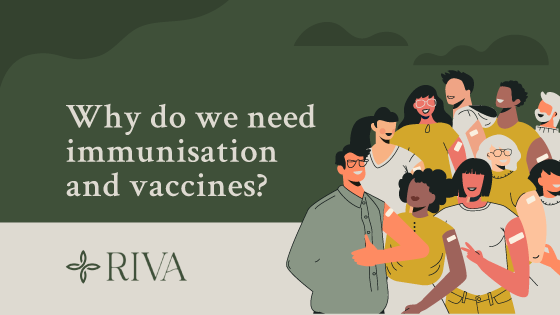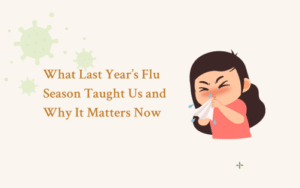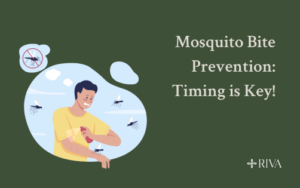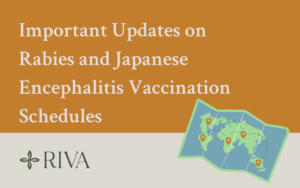It’s highly likely that you’ve received a vaccination at some point in your life – whether it was your standard infant vaccine, a jab before travelling to a foreign country or your COVID-19 vaccination.
Immunisation against infectious disease has been commonplace in our healthcare systems for decades now. A revolutionary scientific breakthrough, they enable us to protect ourselves and our loved ones from infectious diseases, preventing millions of deaths each year. Vaccine programs have the capacity to safeguard our children and vulnerable populations by stopping the spread of infectious diseases such as COVID-19.
And while there is understandable hesitancy when it comes to immunisation and vaccinations, getting vaccinated is a great privilege for us all. It’s important to be correctly informed about the health care services we receive, so we’re going to look at what immunisation is, and why vaccination programs are so important.
How does immunisation work?
Vaccinations work by stimulating the body to produce antibodies that fight infection. They contain a weakened version of a virus or infection, or a small part of it, which allows the body to develop an immune response to it in the form of antibodies.
Antibodies are large proteins that find virus or infection cells in the body and mark them as infectious. Once they do this, it triggers an immune response from the body whereby the immune system destroys these cells. This process happens when your body comes into contact with infectious cells through contracting the disease or through receiving a vaccination. Regardless of how you come into contact with the disease, your body will remember it, and have the antibodies needed should you contract it again.
This means that once the body has produced antibodies against that virus or infection, if an individual comes into contact with it in the future, they will be able to fight it. So, after having a vaccination, you won’t suffer as badly if you catch a virus or disease because your body already knows how to fight it. This is possible as the body has the right tools to recognise the virus or infection and generate a quicker response to it.
Why we need immunisation against infectious diseases
Infectious diseases can cause a lot of harm to a population in regards to loss of life, but can greatly affect the way we live our lives too. As we’ve seen with the coronavirus pandemic, the uncontrolled spread of COVID-19 has caused a lot of damage to various areas of our lives. This is where vaccination programs are particularly effective and beneficial.
Let’s look at why immunisation and vaccination programs are so important.
Safeguarding vulnerable people and populations
Vaccinations play a vital role in protecting people who are immune-compromised or more vulnerable to infectious diseases, such as children or the elderly. For example, the elderly are offered a complimentary flu jab each year because of the fact that the flu virus mutates over time. Immunising the elderly population gives them an extra layer of protection against the virus and significantly reduces the probability of them losing their lives to it. This is especially important in the winter months when other infectious diseases such as the common cold are going around too.
But immunising vulnerable populations isn’t the only way to keep them safe. When everyone else also has access to vaccinations, vulnerable populations are offered more protection thanks to herd immunity. Herd immunity is achieved when a sufficient number of people have been vaccinated, and results in most of the population being protected from a disease, therefore reducing the probability of the disease spreading to vulnerable people.
With transmission rates lower, vulnerable populations have more protection against infectious diseases like COVID-19.
Controlling the spread of infectious diseases
While keeping people safe is the number one benefit and priority of immunisation programs, they also offer support to governments in controlling the spread of infectious diseases. When infectious diseases spread quickly, it can lead to pandemics, like what we’ve seen happen with COVID-19 over the last two years, which has caused major disruptions to our lives.
Keeping populations safe means being able to contain any outbreaks, which immunisation programs provide through establishing herd immunity. There are a number of diseases that no longer pose a threat to society thanks to vaccines, such as polio, rubella and tetanus, amongst others.
In the international context, immunisation plays a big role in stopping the spread of infectious diseases too. When someone wants to travel to a different part of the world where certain diseases are more rife, such as yellow fever, being vaccinated means that you won’t contract it whilst overseas. This is important for stopping diseases from spreading across countries too as people travel.
Supporting public health
When infectious diseases spread quickly, it can overwhelm the infrastructure of a country, causing massive disruptions and restrictions to everyday life, as well as putting a lot of pressure on public services. For example, the spread of COVID-19 caused governments to enforce strict and sudden restrictions on populations, limiting social activities and travel capabilities.
For example, when a large proportion of a population is infected with a virus and unable to work, there is a huge issue with absenteeism. And in public service fields like healthcare and public transport, mass absences can wreak havoc on a government’s ability to provide safety and key resources to their people.
But with the implementation of vaccination programs, we’ve seen a return to normal life and restrictions lifted as more and more people are protected against the virus. Immunisation programs enable governments to reduce the impact of infectious diseases on their populations, economies and society.
On a larger, long term scale, keeping the public safe is a complex task, and vaccination programs make up a prominent part of it. Immunisation programs help to protect those who are vulnerable and underpin health security for all, and healthcare professionals administering vaccines are crucial players in keeping the public safe.
Immunisation training at RIVA
If your clinic or health centre wants to start offering immunisations or ensure that your staff’s training is up-to-date, we can help. At RIVA, we offer high-quality immunisation training programs run by experienced immunisation nurses and professionals.
We’ll empower your team with the right knowledge to care for your patients with confidence, and start offering immunisation services. Book a tailored training program today with us, just get in touch.




